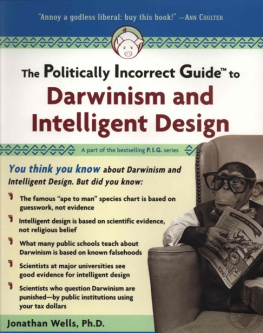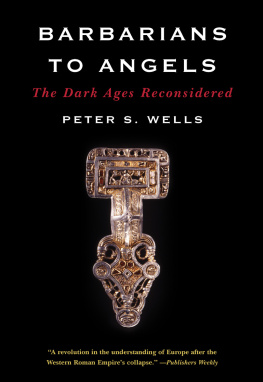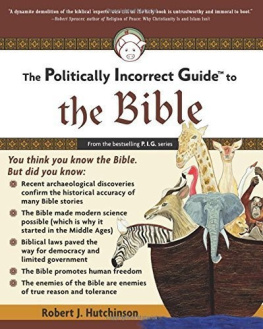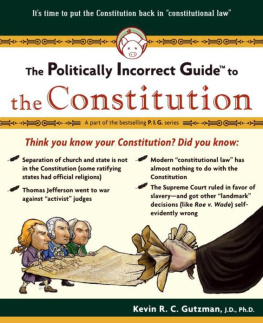Table of Contents
For Phillip and Kathie Johnson
Chapter One
WARS AND RUMORS
E volution Wars declares an August 2005 cover of Time magazine. In a parody of the Sistine Chapel, the bearded figure of God points down at a chimpanzee contemplating the subtitle of the cover story: The push to teach intelligent design raises a question: does God have a place in science class?
In March 2006, the American Association for the Advancement of Science issued an urgent call to arms for American scientists, meant to recruit troops for the escalating war against creationism and its spinoff doctrine, intelligent design.
Controversy over Darwinian evolution has been simmering for decades, and now it has erupted into a full-blown culture war between Darwinism and intelligent design. Pennsylvania State University anthropologist Pat Shipman calls intelligent design horribly frightening and writes: I know that I and my colleagues in science are being stalked with careful and deadly deliberation. I fear my days are numbered. According to Marshall Berman, past president of the New Mexico Academy of Science, intelligent design threatens all of science and society. Brown University Darwinist Kenneth R. Miller says, What is at stake is, literally, everything.
This sounds like more than a war of wordsand it is. But it turns on the meanings of some key words, so lets begin by looking at them.
Guess what?

The controversy is not over evolutionwhich can mean simply change over timebut Darwinism, which claims that design in living things is just an illusion.

Intelligent design is not biblical creationism, but a scientific theory based on evidence from nature and consistent with everyday logic.

Some Darwinists pretend theyre just selling students on change over time when theyre really peddling much more.
Evolution
Evolution has many meanings. In its most general sense it simply means change over time. The present is different from the past. No sane person rejects evolution in this sense.
Refining the meaning slightly, anthropologist Eugenie C. Scott writes: What unites astronomical, geological, and biological evolution is the concept of change through time. But... not all change is evolution, so we must distinguish evolution as being cumulative change through time.
Nobody rejects evolution in this sense, either. Our grandparents had a perfectly good word for it: they called it history.
In biology, evolution takes on additional meanings. Some biologists define it as a change in gene frequencies over generations. Like change over time or cumulative change over time, evolution in this sense is uncontroversial. My genes are different from my parents, and my childrens genes are different from mine. So what?
Darwin + ism =
Darwinism consists of the following claims: (1) all living things are modified descendants of a common ancestor; (2) the principal mechanism of modification has been natural selection acting on undirected variations that originate in DNA mutations; and (3) unguided processes are sufficient to explain all features of living thingsso whatever may appear to be design is just an illusion.
Charles Darwins term for biological evolution was descent with modification. When used in a limited sense, however, even this is uncontroversial. Like a change in gene frequencies, descent with modification happens every time a child is born. Breeders have been using artificial selection to produce descent with modification for centurieswithin existing species. Natural selection has also been observed to do the same in the wildbut again, only within existing species.
So nobody in any field quarrels with change over time or cumulative change over time. And nobody in biology doubts change in gene frequencies or descent with modification within existing species. Even hypotheses that some closely related species (such as finches on the Galpagos Islands) are descended with modification from a common ancestor are not particularly controversial; they generate more debate among evolutionary biologists than they do among biblical creationists, since Genesis states only that God created certain kinds.
But Charles Darwin claimed far more than any of these things. In The Origin of Species he set out to explain the origin of not just one or a few species, but all species after the firstin short, all the diversity of life on Earth. The correct word for this is not evolution, but Darwinism.
Darwinism
Darwin wrote in The Origin of Species : I view all beings not as special creations, but as the lineal descendants of some few beings that lived in the distant past. Darwin believed that living things have been modified primarily by natural selection acting on random variationssurvival of the fittest. I am convinced, he wrote, that Natural Selection has been the most important, but not the exclusive, means of modification.
Survival of the hippest
And Ill survive, I will survive.
Gloria Gaynor
According to a 1998 booklet published by the U.S. National Academy of Sciences: Organisms in nature typically produce more offspring than can survive and reproduce given the constraints of food, space, and other resources in the environment. These offspring often differ from one another in ways that are heritablethat is, they can pass on the differences genetically to their own offspring. If competing offspring have traits that are advantageous in a given environment, they will survive and pass on those traits. As differences continue to accumulate over generations, populations of organisms diverge from their ancestors. This straightforward process... has led the earliest organisms on earth to diversify into all of the plants, animals, and microorganisms that exist today.
Although the origin of life is often included in discussions of evolution, Darwins theory applies only to living things. Darwin speculated that life may have started in some warm little pond, but beyond that he had little to say on the subject. It seems likely that the first cells were bacteria, but as Harvard biologist Marc W. Kirschner and Berkeley biologist John C. Gerhart wrote in 2005: Everything about evolution before the bacteria-like life forms is sheer conjecture, because evidence is completely lacking about what preceded this early cellular ancestor. In any case, Darwinism does not include the origin of life.
Nineteenth-century Harvard botanist Asa Gray argued that biological evolution was guided by God. Gray advised Darwin to assume that variation has been led along certain beneficial lines. Streams flowing over a sloping plain by gravitation (here the counterpart of natural selection) may have worn their actual channels as they flowed; yet their particular courses may have been assigned.
There isnt a Church Lady in intelligent design
Intelligent design (ID) maintains that it is possible to infer from empirical evidence that some features of the natural world are best explained by an intelligent cause rather than unguided natural processes. Since ID relies on evidence rather than on Scripture or religious doctrines, it is not creationism or a form of religion.


 The controversy is not over evolutionwhich can mean simply change over timebut Darwinism, which claims that design in living things is just an illusion.
The controversy is not over evolutionwhich can mean simply change over timebut Darwinism, which claims that design in living things is just an illusion. Intelligent design is not biblical creationism, but a scientific theory based on evidence from nature and consistent with everyday logic.
Intelligent design is not biblical creationism, but a scientific theory based on evidence from nature and consistent with everyday logic. Some Darwinists pretend theyre just selling students on change over time when theyre really peddling much more.
Some Darwinists pretend theyre just selling students on change over time when theyre really peddling much more.















